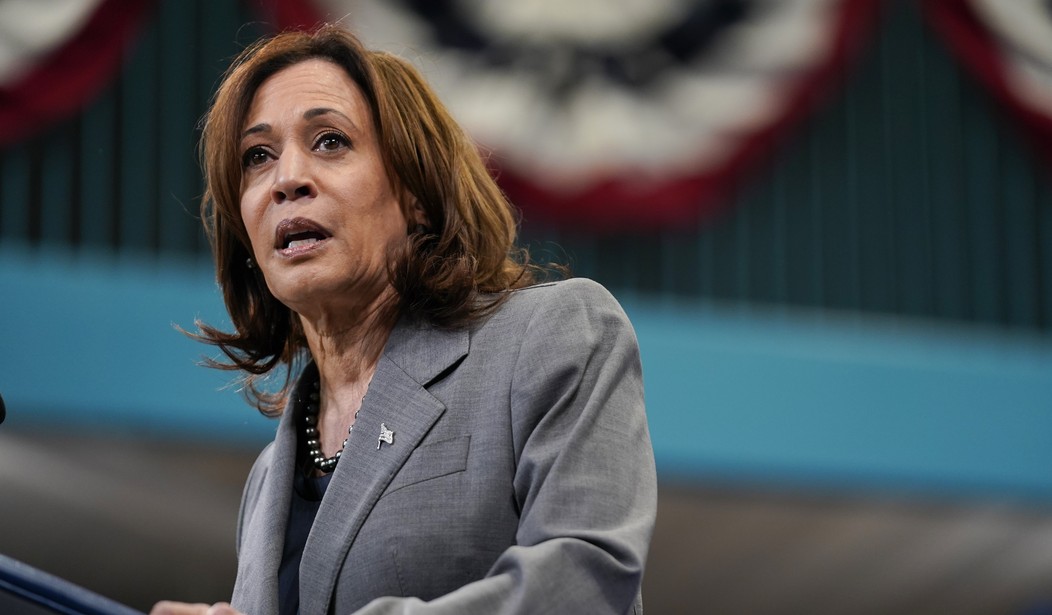Kamala Harris finally came out with a policy position. Her prior one was one that she swiped from her opponent, former President Donald Trump — no tax on tips. Her new policy was going after "price gouging" by corporations, saying that she'd crack down on "excessive prices" and "excessive profits."
What qualifies as "excessive"? This smacks of the Soviet Union and communism, in addition to being truly bad policy. In the U.S., the government doesn't control/dictate to private companies.
READ MORE: Kamala Harris Finally Has a Policy Proposal, and It'd Make the Soviets Blush
Now, what's pretty funny is that the Washington Post recognized this too, in an op-ed entitled: "When your opponent calls you 'communist,' maybe don't propose price controls?"
It’s not hard to figure out where this proposal came from. Voters want to blame someone for high grocery bills, and the presidential candidates have apparently decided the choices are either the Biden administration or corporate greed. Harris has chosen the latter.
In a news release Wednesday, her campaign said the first 100 days of her presidency would include the “first-ever federal ban on price gouging on food and groceries — setting clear rules of the road to make clear that big corporations can’t unfairly exploit consumers to run up excessive corporate profits on food and groceries.”
What are these “clear rules of the road” or the thresholds that determine when a price or profit level becomes “excessive”? The memo doesn’t say, and the campaign did not answer questions I sent seeking clarification.
Hey, who needs clarity? You're just supposed to vibe on her saying something against those greedy corporations! Funny how the greedy corporations weren't "greedy" under former President Donald Trump — inflation rose under the Biden-Harris team.
The WaPo op-ed went further in glorious truth, noting just how bad this would be.
It’s hard to exaggerate how bad this policy is. It is, in all but name, a sweeping set of government-enforced price controls across every industry, not only food. Supply and demand would no longer determine prices or profit levels. Far-off Washington bureaucrats would. The FTC would be able to tell, say, a Kroger in Ohio the acceptable price it can charge for milk.
At best, this would lead to shortages, black markets and hoarding, among other distortions seen previous times countries tried to limit price growth by fiat. (There’s a reason narrower “price gouging” laws that exist in some U.S. states are rarely invoked.) At worst, it might accidentally raise prices.
The op-ed also noted that contrary to excessive profits, supermarket profit margins are "notoriously thin." It said that the Harris economic advisers seemed to be "either too confused or lazy" to tell the difference between illegal price fixing and market fluctuations based on supply chain disruptions or high demand.
Oh, and finally:
But more to the point: If your opponent claims you’re a “communist,” maybe don’t start with an economic agenda that can (accurately) be labeled as federal price controls.
When even the WaPo is making the "communist" link and calling you out, you may just have a problem.
Not to mention that it's the Biden/Harris overspending that helped to kick off this inflation. And Harris has already had "day one" in power — she's had three-plus years to try to figure it out and just made it worse.
The "policy" is horrible, but you're just supposed to be vibing on how she's going to take care of the evil corporations. She apparently vetted this policy like she vetted her running mate Tim Walz — which is to say not at all or keeping her eyes covered about all the bad stuff.














Join the conversation as a VIP Member